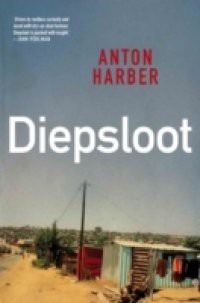In a little more than a decade, Diepsloot has transformed from a semi-rural expanse to a dense, seething settlement of about 200 000 people. A post-apartheid creation lying to the north of Johannesburg, Diepsloot is talked about as a place of fear, vigilante justice, xenophobic violence and a haven for criminals and undocumented foreigners. Respected journalist Anton Harber spent several months there, meeting the people, drinking in the taverns and probing the bitter local political battles. He patrolled with volunteer crime-fighters at night. He spoke to politicians, church members and artists. He interviewed city officials, asking them why so little progress was being made in developing Diepsloot. He investigated why the much-need police station stands unfinished. Amidst the poverty, violence and chaos, he found a bustling place much loved by its inhabitants, an active economy with all the associated hustling and trading. He found people who, when neglected by the state, made their own solutions. ‘Most of all, I learned that if you want to understand where this country is headed, you need to listen to the people of Diepsloot. Hear what they are saying. Take note of their hopes and aspirations. You might be surprised.’ ‘Diepsloot is the first study of its kind that seeks to understand change as it is lived on the ground, and not as it is talked about in the media and corridors of power. Rich with detail and local colour, it offers a nuanced examination of life as it is lived despite the State with its half-completed police station and the ANC with its internecine warfare.’ - JACOB DLAMINI

